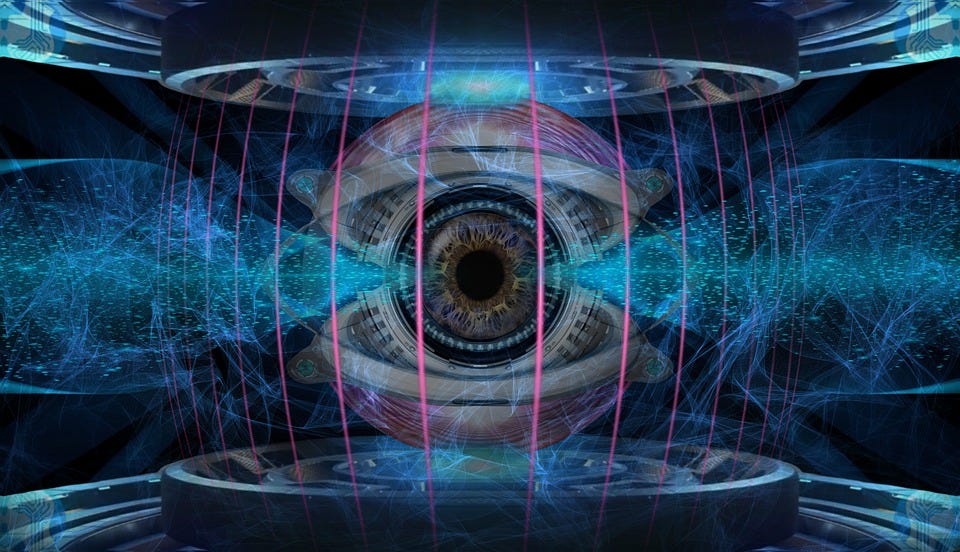For years, the rise of artificial intelligence has sparked the curiosity of both scholars and scientists. At present, smart machines help us out a lot, but looking ahead, AI could evolve in the next few decades to significantly alter our way of life. How will our lives and future be affected if we develop highly intelligent machines? Over the last 20 years, global interest in AI has steadily increased. Universities, government agencies, and wealthy investors are pouring billions of dollars into initiatives and research focused on AI.
Already, in the early 2020s, almost every industry uses intelligent, context-dependent machines, called narrow or weak AI. In production facilities, AI supports human workers. In hospitals, virtual nurses track patient vitals and analyze their data. In fact, entire industries, like digital marketing, rely on data collected by artificially intelligent software. With so many industries seeking newer, faster technologies, the production of narrow AI continues to grow. On smartphones and computers, intelligent machines are already woven into the fabric of our lives, but these machines capture only a small fraction of what narrow AI can do.
In the next 20 years, leaders in the field predict significant growth in the production and diversity of narrow AI, thereby improving the communication and productivity of our society as a whole. Some experts are optimistic about the future role of narrow AI as stepping-stones toward a more advanced human society, but other experts worry humans will become over-reliant on machines. For example, as narrow AI gets better, it could revolutionize how people work globally. By 2040, at least 50% of routine, quantitative jobs may be performed by narrow AI, but that number could climb as high as 90%. Large companies are already replacing human workers with hundreds of thousands of robots. As narrow AI becomes more popular and less expensive, many companies may reduce their human workforce to a mere 10% of its current volume.
These estimates suggest a challenging future for everyone, but the growth of narrow AI also offers humans a unique opportunity. The loss of repetitive, non-creative occupations may trigger a global re-education of the workforce. Average workers may obtain higher-paying, bigger-picture roles — no longer responsible for basic processes like construction or routine manufacturing. A higher density of machines will also require a substantial increase in engineers, programmers, and repairmen. More and more workers will learn how to maintain robots, create software, and speak the coded language of artificial systems. Over time, the elevation of the workforce and the higher demand for skilled workers may cultivate a stronger global economy, increasing wages, decreasing poverty rates, and making higher education more accessible for the general population. The growth of narrow AI could theoretically remedy lopsided political and economic systems by reducing the gaps between socio-economic classes; but there’s no guarantee powerful AI will benefit the greater good. The growth of artificial intelligence could just as easily destabilize our global economy, radicalizing pre-existing hierarchies by catering to the extremely wealthy.
At the same time, the growth of narrow AI will increasingly intrude upon basic human freedoms, therefore changing the relationship between humans and technology. People around the world are increasingly concerned about digital privacy and it’s becoming a big topic of debate. For instance, social media algorithms gather and share personal data, enabling machines to create detailed profiles and accurately predict what you need, want, and like. In the next few decades, our gadgets and tech are probably going to get a lot more complicated, but so will violations of privacy and other basic freedoms. Suffice to say, narrow AIs are impacting our society on a grand scale; however, these context-specific machines pale in comparison to strong AI, also known as Artificial General Intelligence or AGI. Unlike narrow or weak AI, which are restricted to a specific set of tasks, an AGI can generalize the knowledge it learns to solve a variety of problems in a variety of contexts.
Right now, AGI research is mostly about exploring big ideas rather than actual, practical advancements. Though humans have created very intelligent machines — like IBM’s Watson, which is capable of learning and processing language — nobody has created a system as intelligent as a human being. But some leaders in the field do expect an important scientific breakthrough as early as 2050. Before humanity leaps into the unknown world of strong AI, we must consider the ethics and consequences of producing machines as smart as humans. Beyond the fantastic dystopias displayed in the media, scholars do foresee real dangers in the production of strong AI. If we create a machine that can think and reason like a person, it could take us to new heights and redefine what’s possible and surpass the human mind. One day, that very same machine could achieve self-awareness, though experts widely disagree on whether computers can ever be self-aware. If possible, a sentient machine may outperform humans in every discipline, making humans irrelevant in the shadow of our own creation.
With the proper precautions, however, AGI could launch our society and our species into an age of transcendent growth. But how do we program super-intelligent, possibly sentient machines to protect the interests of humankind? The Three Laws of Robotics, designed by author Isaac Asimov in 1942, act as a fictional vehicle for this complicated issue. Instead of power or intelligence, developers of strong AI should place more value on cooperation between humans and machines. If we want AGIs to be safe and useful, they need to be programmed to always put human safety ahead of everything else, including the pursuit of knowledge and the protection of its own existence.
Even a human-friendly AGI does not guarantee a healthy, lasting relationship between humans and machines. Similar to the overproduction of narrow AI, the growth of strong AI could stifle the agency, autonomy, and competence of humanity. If we rely on machines to solve our problems, we may lose our creativity, our drive, and our sense of purpose. If humans become complacent in a machine-driven paradise, we may abandon the aspirations that define our species. In the growing field of artificial intelligence, a single breakthrough can affect our society on a macro scale. Soon, sophisticated machines will spread, for better or for worse, to every industry and every household in the world. As narrow AIs evolve into strong AIs, machines could one day bring about the downfall of humanity; however, the same machines could better our social systems and significantly improve our quality of life. Either way, humans are moving steadily toward a future defined by intelligent machines, but one critical question remains: is the risk worth the reward?

